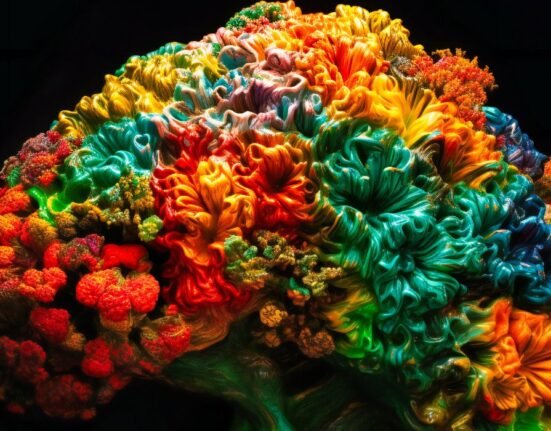We often hear the expression “fair and lovely” in Indian culture, but have we ever stopped to think about why we link being fair with being attractive? Why do we value having pale skin so highly in our culture. Why do we use the phrase “fair and lovely” to describe the ideal beauty standard? This phrase typically refers to the ideal beauty standard in our culture, which is pale skin. Unfortunately, this idea has contributed to India’s widespread colourism, which is the prejudice towards people with darker skin tones. Colourism in India has a long history of class and caste prejudice, reinforcing the notion that dark-skinned people are less intelligent, less handsome, and hold lower societal positions.
We know it may seem like a beauty issue but hold on- it’s much more than that. It’s a psychological issue with real consequences. According to studies, colourism can greatly impact someone’s mental health, physical image, and self-esteem. For instance, studies have shown that those with darker skin tones are more prone to suffer from depression and anxiety due to colourism. Let’s look at the statistics and the history of colourism.
Information collected by survey
A 2016 World Health Organisation (WHO) survey found that almost 70% of Indian women use skin-lightening cosmetics. According to a YouGov survey from 2018, 61% of Indian women think that having fair skin is essential for social acceptance. Also 52% think it’s important for finding a good husband. These statistics show how deeply ingrained the notion that a light complexion is ideal, especially for women, is. Not to forget the double discrimination that a woman faces from the rungs of gender and colour. But what led to these numbers? Let’s look at our history and how colourism gradually became entrenched.
Being a colonised nation, we cannot ignore the British’s influence on this concept. So, a fair complexion was considered an indicator of power and rank during the British colonial era. Whereas dark skin was connected to lower castes and manual labour. Indians started to internalise colourism as a result, starting to think lighter skin is more attractive. They were the ones who taught us white is good. Women’s manner of life was subject to expectations in patriarchal civilizations. Where their social standing, degree of education, and class were all determined by how fair their complexion was.

The problem is much more pervasive since it is not just one person’s job. It is more important to examine Indian society as a whole and keep an eye on how colourism is maintained. But it can be told that British rule was the starting point when beauty and physical appearance became highly valued. Now, a lighter complexion is often connected with purity, whereas darker skin is linked to negative traits like ugliness and poverty. By regularly portraying light-skinned celebrities and models as the pinnacle of beauty, the media and advertising have helped to promote this perception.
Consider yourself a girl growing up in India and observing how the media, commercials, and even your family actively support colorism. In supporting parts or stereotyped characters, the media commonly employs actors with darker skin tones. While lighter-skinned actors are often seen in major roles. Through their marketing for skin-lightening products, some companies in India aggressively encourage the idea that more prosperity and pleasure may result from having lighter skin. Even families might prioritise finding a fair-skinned spouse for their children, or people might experience prejudice at work because of their skin tone.
How It Can Affect Your Mental Heath
As we mentioned earlier, the impact is beyond just beauty. People who experience colourism may develop unfavourable thoughts about their looks and experience insecurity around their skin tone. Lower self-esteem, self-worth, and confidence might result from this, which may have an impact on their interpersonal and career connections.
Colorism may affect how people view their bodies, which can result in unhappiness and a negative body image. According to studies, discrimination based on skin tone might make people more stressed, depressed, and anxious. This can have long-term negative consequences on mental well-being.
So, Ready To Redefine Our Beauty Standards?
Now that we are conscious of how long beauty standards have been a problem in India, especially for those with darker skin tones. Let’s consider ways that erase outdated notions of beauty and create a more inclusive standard.
- Respect cultural diversity: One strategy for challenging conventional notions of beauty is to embrace cultural diversity. Understanding the various characteristics and features that set people from other cultures apart is necessary for this. For instance, embracing traditional attire, accessories, and haircuts can support variety while contributing to the breakdown of rigid standards of beauty.
It might be as simple as understanding the science of melanin. The skin darkens as the body creates more melanin. Genes, environment, and sun exposure are just a few of the many variables that affect how much melanin is present in our skin. - Promote a positive self-image: Encouraging people to develop a positive self-image is one way to go against socially accepted beauty norms. Positively encouraging others to cherish the unique qualities that make them unique is important. Supporting body-positive programmes and creating safe spaces where people may express themselves without worrying about consequences are two ways to achieve this.
In India, colourism is a widespread issue with profound psychological consequences. It is impossible to ignore colourism’s negative impacts, ranging from low self-esteem to mental health issues. Although there is still a long way to go. We can unquestionably make improvements in this area to create a society that is more inclusive.













Leave feedback about this